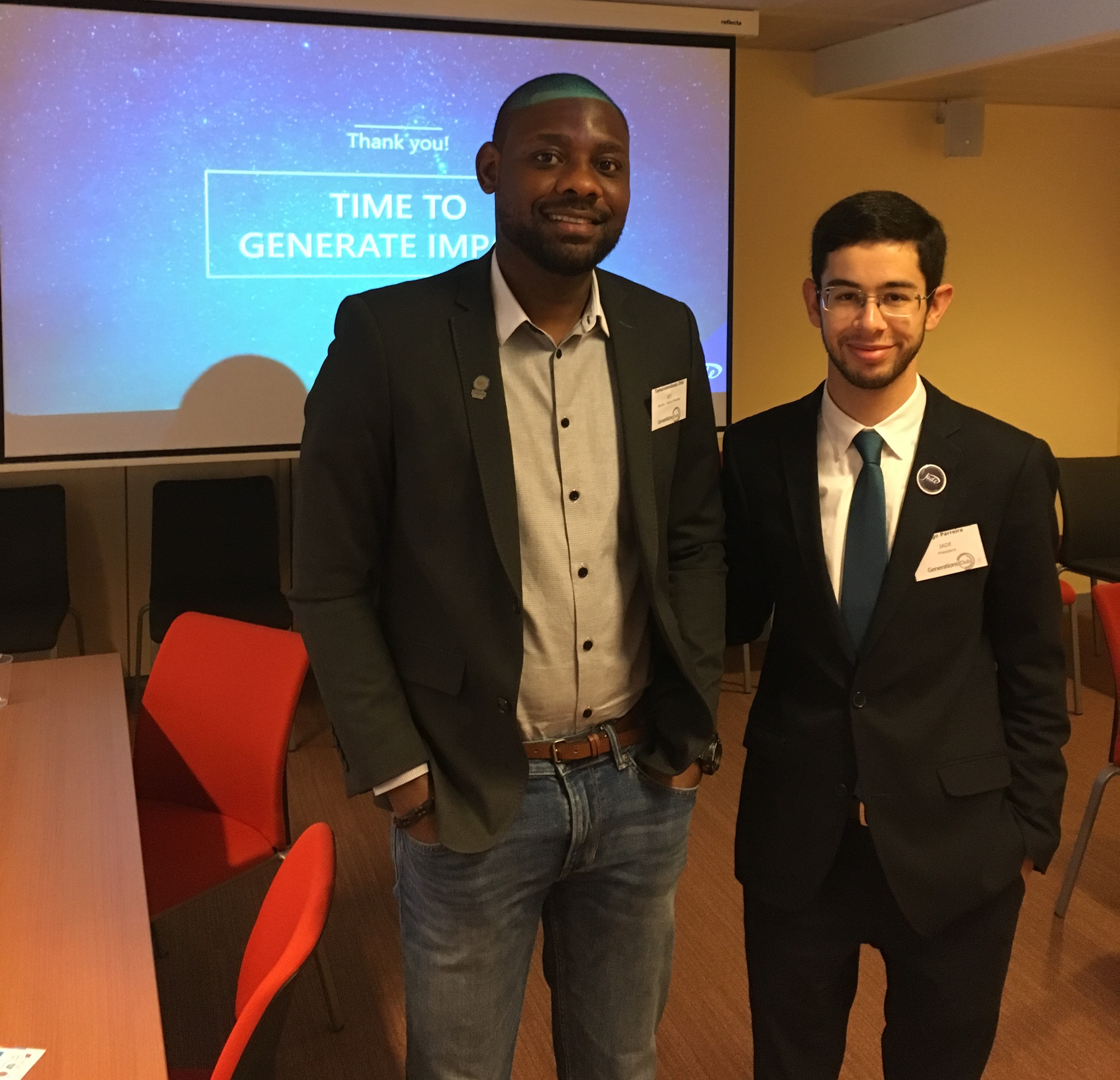Part of the unique benefits one can derive from being part of the EIT Alumni Community is by contributing in positioning the community amongst dominant European Networks, and also taking part in initiatives that are distributed among an innovative community of young entrepreneurs and innovators who will be instrumental in driving future change.
As part of the community engagement and collaboration, our Events Officer Tamunomiebaka a.k.a. Bobo recently took part in the 11th Edition of Generations Club held in the Eurochambres in Brussels on the 7th of December 2017. This event was organised by the European Confederation of Junior Enterprises - JADE.
The theme was on Sustainable Innovation. The event itself creates the right environment to promote the dialogue between different “generations” through small focus groups with the final aim of producing a high-quality report for stakeholders and recommendations for policymakers with the inputs collected during the event for Europe and perhaps globally.
The event was chaired by Fabian Zuleeg, the CEO of the European Policy Centre. In his remarks, he encouraged participants (made up of different NGO's, and people from the private/public sectors) not only to align with sustainable goals, but also to "translate" these goals to make a difference. But the challenge is that if things do not change in Europe, globally it will also be a problem. Sustainability and development are compatible he said, and we need to strive on creating industries that are greener and smarter. In his closing remarks, he reminded participants that it is not about reinventing the wheel, but it is all about "scaling it".
The event was on two-fold. The first session was on brainstorming about “The right environment for sustainable Innovation”. Myrna Hansseguy, Director Europe|Enterpreneurship.org gave a brief overview of the types of innovation with examples to back her claims. This was in line with the organisers' idea of an impact presentation for the session. The aims of the discussion was to:
- identify the essential characteristics of successful innovation workplaces. (i.e. organisational structure, leadership style, values, mission, aims, etc.);
- identify what the most effective sustainable projects to pursue;
- identify the most common traits in the attitudes of young people focused on sustainable innovation.
The second session was on “Incentives for Sustainable Innovation”. Andre Meyer from the European Commission in his impact presentation challenged participants not to stand in the way of innovation and made it known that the role is to allow, facilitate and link people with ideas. The aims of the discussion of the second session was to:
- identify means of motivation to push young people to create sustainable entrepreneurial ventures;
- create a list of incentives available to the public to support entrepreneurial ventures with sustainable goals;
- identify the role of institutions, companies and NGOs, to push young people to pursue viable entrepreneurial ventures;
- collect relevant examples of successful examples of venture creation and identify the main reason for success.
In the group discussions, members of JADE were the moderators to control the flow of affairs. In conclusion, it was good to know that the EIT Knowledge triangle principle sits at the forefront of solving sustainable Innovation issues. Bobo was able to use this platform to share robust and radical views in the discussion group. “Most of the solutions offered are things that the EIT Alumni Community has hands-on already, but there is perhaps one important challenge the EIT Alumni face, and that is how we do bring Social Entrepreneurship to the limelight”.
A report from JADE based on the inputs gathered will be published soon, and we hope that the alumni can take inspiration from it and keep the mission of the alumni afloat. “Participating in this event has fostered more future collaborative partnerships”.

Bobo with JADE's President Diogo Parreira
